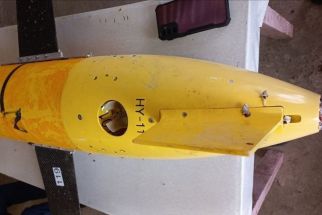SC cannot question basis for Proclamation 1017 – Miriam
February 28, 2006 | 12:00am
The Supreme Court cannot question the factual basis of President Arroyo’s Proclamation 1017, Sen. Miriam Defensor-Santiago said yesterday.
"The Constitution does not give the court any such power when the President merely declares a national emergency," said Santiago, a constitutional expert.
She explained that under Article 7, Section 8 of the Constitution, the SC has the power to review the factual basis of a proclamation only when the President proclaims martial law or suspends the writ of habeas of corpus.
What the high court can do, according to Santiago, is review specific acts such as the raid on the office of the Daily Tribune or the arrest of retired Gen. Ramon Montaño and party-list Rep. Crispin Beltran, but not Proclamation 1017 itself.
The Senate cannot hold an inquiry on 1017 either because no legislation is involved.
"What is involved is a constitutional provision which the Senate has no power to change," Santiago explained, adding that should the Senate decide to conduct an inquiry nevertheless, it may not compel the attendance of Cabinet members because Executive Order 464 is still being enforced.
The EO stipulates that Cabinet members cannot testify in a legislative inquiry without the approval of the President.
Santiago added that a state of emergency has a limit of two months.
"The definition of ‘emergency’ in law indicates that it is temporary," she said. "But even during a national emergency, government may not impose censorship or total ban on mass media because free speech occupies the highest priority in the hierarchy of constitutional values."
"The Constitution does not give the court any such power when the President merely declares a national emergency," said Santiago, a constitutional expert.
She explained that under Article 7, Section 8 of the Constitution, the SC has the power to review the factual basis of a proclamation only when the President proclaims martial law or suspends the writ of habeas of corpus.
What the high court can do, according to Santiago, is review specific acts such as the raid on the office of the Daily Tribune or the arrest of retired Gen. Ramon Montaño and party-list Rep. Crispin Beltran, but not Proclamation 1017 itself.
The Senate cannot hold an inquiry on 1017 either because no legislation is involved.
"What is involved is a constitutional provision which the Senate has no power to change," Santiago explained, adding that should the Senate decide to conduct an inquiry nevertheless, it may not compel the attendance of Cabinet members because Executive Order 464 is still being enforced.
The EO stipulates that Cabinet members cannot testify in a legislative inquiry without the approval of the President.
Santiago added that a state of emergency has a limit of two months.
"The definition of ‘emergency’ in law indicates that it is temporary," she said. "But even during a national emergency, government may not impose censorship or total ban on mass media because free speech occupies the highest priority in the hierarchy of constitutional values."
BrandSpace Articles
<
>
- Latest
- Trending
Trending
Latest
Trending
Latest
Recommended
January 3, 2025 - 12:00am
January 3, 2025 - 12:00am



























